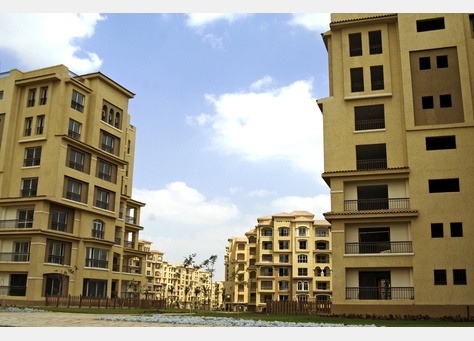The National Bank of Kuwait (NBK) said the state’s general budget deficit remains a great challenge for the Egyptian government, despite the ongoing reform efforts.
In a recent report, NBK stated that the Egyptian economy has maintained the rapid pace of growth during the first quarter (Q1) of 2015, despite the slight decline of indicators.
The NBK expects the Egyptian economy’s real growth to exceed 4% this year for the first time since 2010. This will occur with support from the political scene’s stability, and financial support provided by the Gulf Cooperation Council (GCC), in addition to improvements in business confidence.
The report added that the government sector has supported Egypt’s economic growth through its contributions to the activation of investment. The government is currently working on a number of investment initiatives and projects, including the expansion of the Suez Canal.
The NBK added that though there are still many challenges facing the Egyptian economy, these are lessening, as well as major improvements in Egypt’s political and security situation. The deficit in the state’s general budget remains a concern for the government, although a number of reforms were presented and implemented throughout the last year, according to the NBK.
The report stated that the financial deficit reached 13.7% of gross domestic product (GDP) in April 2015, compared to 10.8% in April 2014.
The bank expected the ratio to decline by the end of fiscal year (FY) 2014-2015, to nearly 12.5% of total GDP.
International markets are still confident that the Egyptian government will take all necessary reform measures, especially with the strength of the issuance of the recent bonds in the American dollar.
The NBK report refers to the continuity of the Egyptian economy’s growth over the last months, with the real GDP increasing to 4.3%, on annual bases during 2014.
The bank explained that the latest data about the Egyptian economy, points out that the economy is still recovering, despite a slowdown over Q1 of 2015, although it is expected that growth will jump to 4.5% over FY 2014/2015. It is also expected that
growth will continue the same way over the FY 2015/2016, and that afterwards it will witness an improvement.
According to the NBK report, the Economic Summit, held in Sharm El-Sheikh last March, was a great success, and will be provide support to Egypt’s investments and foreign reserves.
The report revealed that during the summit, investment projects amounting to $175bn were announced, with the majority to be implemented over the next five years. The GCC has offered additional aid in the short term, through a deposit at the Central Bank of Egypt (CBE) amounting to $6bn.
The majority of investment plans proposed during the Economic Summit were: petroleum and gas sector projects, amounting to $21bn; power generation projects amounting to $43bn; or development and urbanisation projects, amounting to $58bn.
The report pointed out that the Egyptian government is committed to many financial reforms, such as raising fuel prices last year. It is expected that the government will implement other subsidies reforms, such as offering new ration cards for fuel. Also it intends to increase revenues by implementing the added value tax.
The report criticised the Egyptian government’s abolition of the capital gains tax in the Egyptian Stock Market (EGX), and emphasised that this could delay the implementation of some financial reforms in Egypt.




